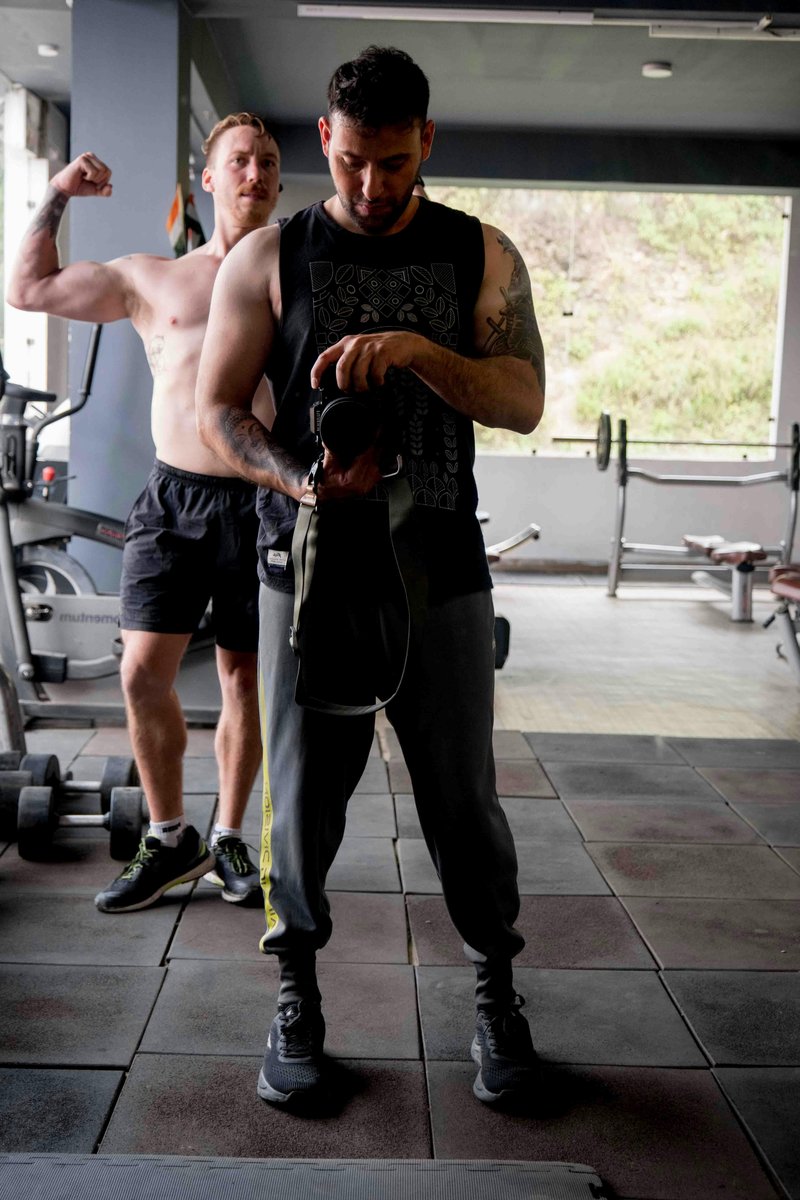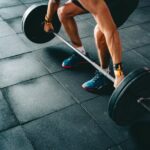Unlocking the Power of Posture for Male Hormonal Health
Most men overlook one of the simplest ways to boost their masculinity: posture. The relationship between posture and testosterone is not just aesthetic—it’s hormonal. Your stance affects your endocrine system, mood, and even your confidence in bed. Slouched shoulders and forward necks don’t just look weak—they signal to your body that you’re under threat, triggering stress responses that suppress testosterone.
How Posture Sends Signals to Your Brain
Your posture shapes how your brain perceives your environment. Confident, upright posture sends signals of safety and dominance. In contrast, collapsed posture mimics a fight-or-flight state, which raises cortisol and tanks testosterone. These hormonal changes affect everything from your libido to your motivation.
Power Poses and Hormonal Changes
A famous study from Harvard found that just two minutes in an expansive “power pose” led to a 20% increase in testosterone and a 25% decrease in cortisol. This isn’t magic—it’s biology. When you take up more space, your brain believes you’re winning, and adjusts your hormones accordingly.
Spinal Alignment and Gland Function
Poor posture affects spinal alignment, compressing nerves and reducing blood flow to critical glands like the pituitary and adrenal. These glands are essential for hormone production and balance. If your spine is misaligned, your body may struggle to produce optimal testosterone, leading to fatigue, low libido, and poor performance.
Continue Reading
To discover how to fully reclaim your male performance, access the full growth protocol here.
Why Posture Is More Than Just Appearance
Posture Affects Hormones and Mindset
Good posture isn’t just about standing tall—it’s a signal of internal strength. The body and brain are in constant communication. When you align your spine and open your chest, your body responds by shifting from survival mode to performance mode. This triggers the release of testosterone while suppressing cortisol, your primary stress hormone.
Men with better posture often report increased confidence, reduced anxiety, and greater assertiveness. These are all outcomes of improved hormonal balance. By fixing your posture, you’re not just improving how you look—you’re upgrading how you operate.
The Role of the Nervous System
Your spinal cord is the highway between your brain and hormones. Poor posture kinks that highway. For instance, rounded shoulders can lead to thoracic outlet syndrome, which limits oxygen and blood flow to vital organs and glands. This diminishes your body’s ability to produce and regulate testosterone effectively.
Think of posture as the “user interface” of your nervous system. When it’s optimized, your entire system runs smoother—from focus and energy to sex drive and recovery.
Postural Habits That Lower Testosterone
Desk Jobs and Tech Neck
Modern men spend hours hunched over desks, laptops, and phones. This creates “tech neck”—a forward head posture that compresses the cervical spine. It not only causes chronic pain but also stimulates stress responses in the body that weaken testosterone production.
Slouching and Breathing Patterns
Slouched posture reduces lung capacity and leads to shallow breathing. This limits oxygen intake, increasing fatigue and anxiety—two major libido killers. Over time, this reinforces a stress loop that depletes testosterone and dopamine, sapping your energy and masculinity.
Fix Your Posture, Fix Your Hormones
Stretch and Strengthen Key Areas
Target the hips, chest, and upper back. These areas are often tight or weak due to sedentary lifestyles. Incorporate exercises like:
- Thoracic extensions over a foam roller
- Hip flexor stretches
- Wall angels
- Scapular retractions
These movements open the body, promote better alignment, and stimulate testosterone production by reducing systemic stress and improving oxygen delivery.
Incorporate Postural Checks Throughout the Day
Set hourly reminders to sit up straight, pull your shoulders back, and take deep belly breaths. Use visual cues like a sticky note on your monitor or a posture device to retrain your body into a more dominant stance.
Posture and Sexual Performance
Blood Flow and Erection Quality
Proper posture improves pelvic alignment and blood flow—two critical components for sexual function. Misalignment in the lower back or pelvis can compress arteries and nerves, reducing sensitivity and performance. Straighten your spine, and you open the highway for better erections and longer stamina.
Libido and Male Identity
Your posture influences how others perceive you—but more importantly, how you perceive yourself. Standing tall reinforces your masculine identity, fueling the mental state necessary for desire, confidence, and dominance in the bedroom.
Advanced Hacks to Reinforce Masculine Posture
Weighted Carries
Farmers carries and rucksack walks are powerful for reinforcing upright posture and building stability. These exercises train your body to hold itself in alignment under pressure—just like real life.
Posture While Sleeping
Sleep on your back with a small pillow under your knees, or on your side with a pillow between your legs. Avoid stomach sleeping, which twists the spine and disrupts recovery. Better posture at night means better hormone release and deep sleep.
Interconnected Factors
Optimizing posture goes hand-in-hand with other male health upgrades. For example, learning how to protect your dopamine levels amplifies the benefits of testosterone alignment. Likewise, adequate sunlight exposure supports the hormonal shifts triggered by postural improvements.
The Psychological Power of Standing Tall
Body Language and Testosterone Feedback Loops
Your posture is your first impression. It’s non-verbal dominance. When you carry yourself with strength, your body responds in kind—releasing hormones that align with your stance. Upright posture lowers social anxiety and raises testosterone through feedback loops that reinforce internal confidence.
Practicing dominant posture daily can actually rewire your brain. Over time, you feel less like you’re faking confidence and more like you’re becoming that man for real.
Posture and Social Success
Men with strong posture are perceived as more attractive, more competent, and more trustworthy. This perception gives you an edge in both romantic and professional settings, which further reduces stress and boosts testosterone naturally. Your body becomes your advantage, not your weakness.
Simple 5-Minute Daily Routine
Wake-Up Reset
Start your day with a quick series of movements to reinforce alignment:
- Cat-cow stretches (10 reps)
- Deep belly breathing (3 mins)
- Wall stand for posture awareness (2 mins)
This 5-minute investment primes your posture and hormone system before your first cup of coffee.
Pre-Bed Decompression
At night, use thoracic foam rolling and hip openers to undo tension. This practice helps reset posture while improving your quality of sleep—which is crucial for testosterone regulation.
Why Most Men Don’t Fix This—and Stay Weak
Lack of Awareness
Most guys have no idea that posture affects testosterone. They chase supplements, workouts, or worse—synthetics—without ever addressing their spinal foundation. It’s like trying to build a skyscraper on soft sand.
Short-Term Thinking
Men want quick fixes. But true masculine energy comes from daily practices. Fixing your posture won’t make you a beast overnight—but it will transform your baseline permanently. With time, your spine becomes a pillar of strength, and your hormones follow suit.
Real Results from Real Men
Case Study: The Executive Slouch
Tom, a 38-year-old executive, struggled with low libido and brain fog. Despite a healthy diet, his testosterone was below optimal. A posture coach discovered that Tom’s tech-neck and slouch were compressing his cervical spine. After 4 weeks of posture correction, his libido returned, mental energy surged, and his bloodwork improved dramatically.
Case Study: The Gym Bro Plateau
Jake, a 28-year-old lifter, couldn’t figure out why his T-levels were stalling. His workouts were intense, but his posture was trash—rounded shoulders, tight hips, weak glutes. A combination of posture drills, sunlight walks, and stress reduction reignited his testosterone and his confidence.
Begin Your Transformation Today
Posture isn’t about looks—it’s about power. It’s the backbone of your hormonal system. Stand tall, breathe deep, and your testosterone will respond.
Want to take your growth to the next level—from stronger erections to bigger size and better stamina? Start your natural transformation today.
Keep Up the Momentum
If you’re serious about becoming the most optimized version of yourself, don’t stop here. Learn how to eliminate hidden testosterone disruptors in your home and build a complete foundation for male vitality.
Final Thoughts: The Hidden Key to Male Dominance
Your Spine, Your Power
Posture isn’t a minor detail—it’s a core driver of how you feel, perform, and project masculinity. Align your spine, and your testosterone will follow. Fix your foundation before chasing supplements or pills. Everything starts with the way you carry yourself.
Next Steps
Implement a posture habit today. Combine it with daily sunlight, dopamine optimization, and endocrine disruptor elimination to become the most powerful version of yourself. Your future self will thank you.
🧍 Posture vs Hormones: What Science Shows
| Posture Type | Hormonal Effect | Sexual Energy | Confidence |
|---|---|---|---|
| ✅ Upright/Aligned | ⬆️ Higher Testosterone | 🔥 High | 💪 Assertive |
| ❌ Slouched/Collapsed | ⬇️ Elevated Cortisol | ❄️ Suppressed | 😓 Anxious |
| 🧘 Power Posture (2 min) | 📈 Boosted T/C Ratio | ⚡ Recharged | 🧠 Focused |
FAQs About Posture and Testosterone
How does posture affect hormone production in men?
Posture changes how your nervous system communicates with endocrine glands. Upright posture signals safety and dominance, reducing cortisol and boosting testosterone. Poor posture compresses glands, blocks oxygen flow, and sends your body into stress mode.
Can fixing posture really improve libido and energy?
Yes. Studies have shown that men who adopt expansive posture experience hormone boosts and performance improvements. It’s a foundational shift that affects confidence, stamina, and overall masculinity.









